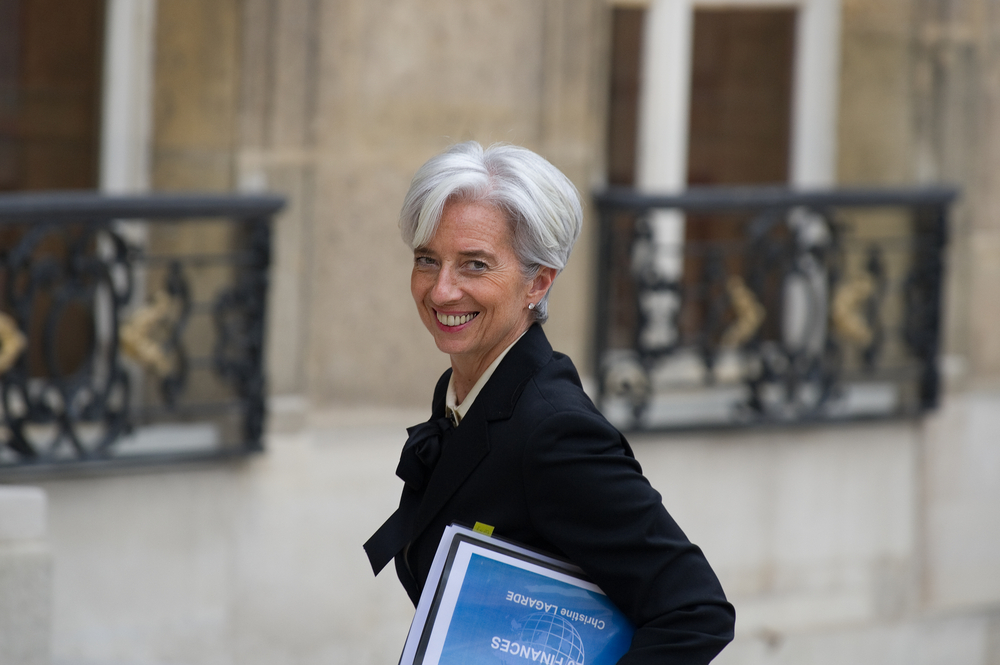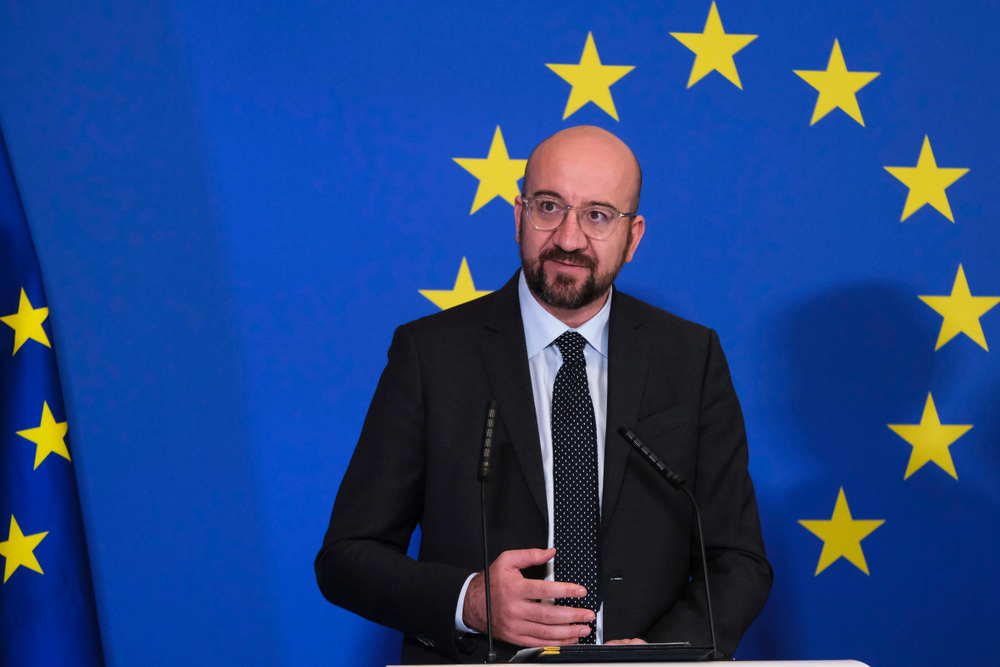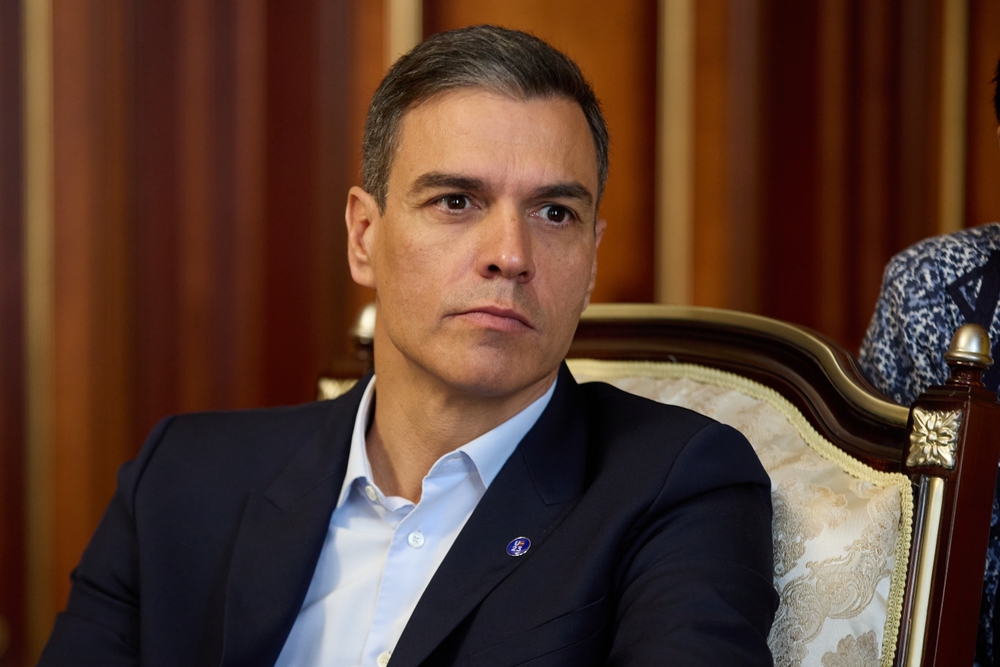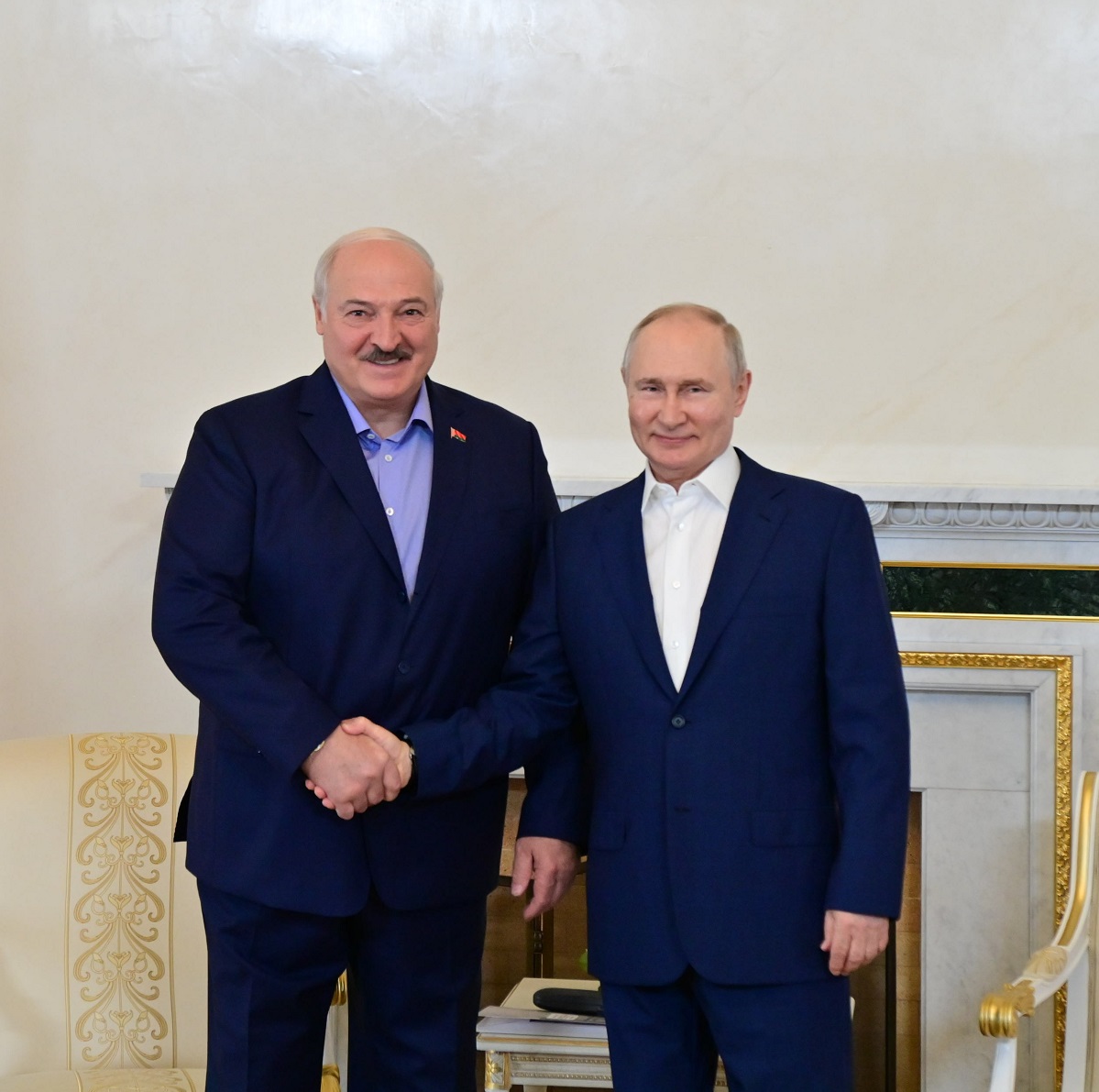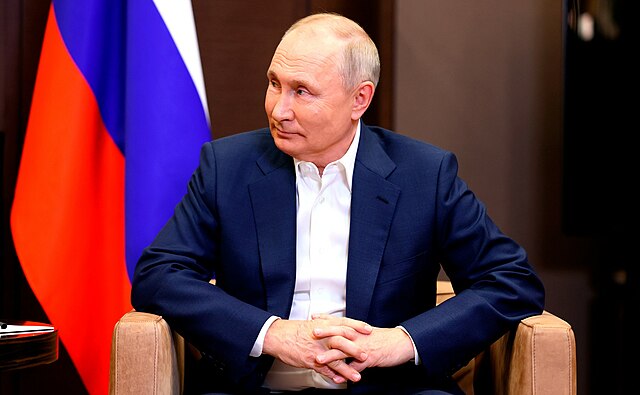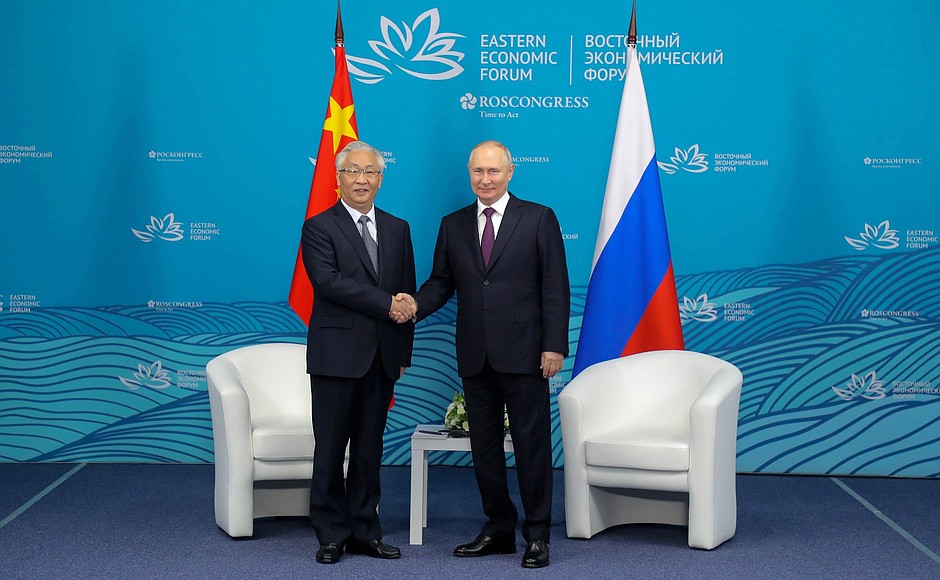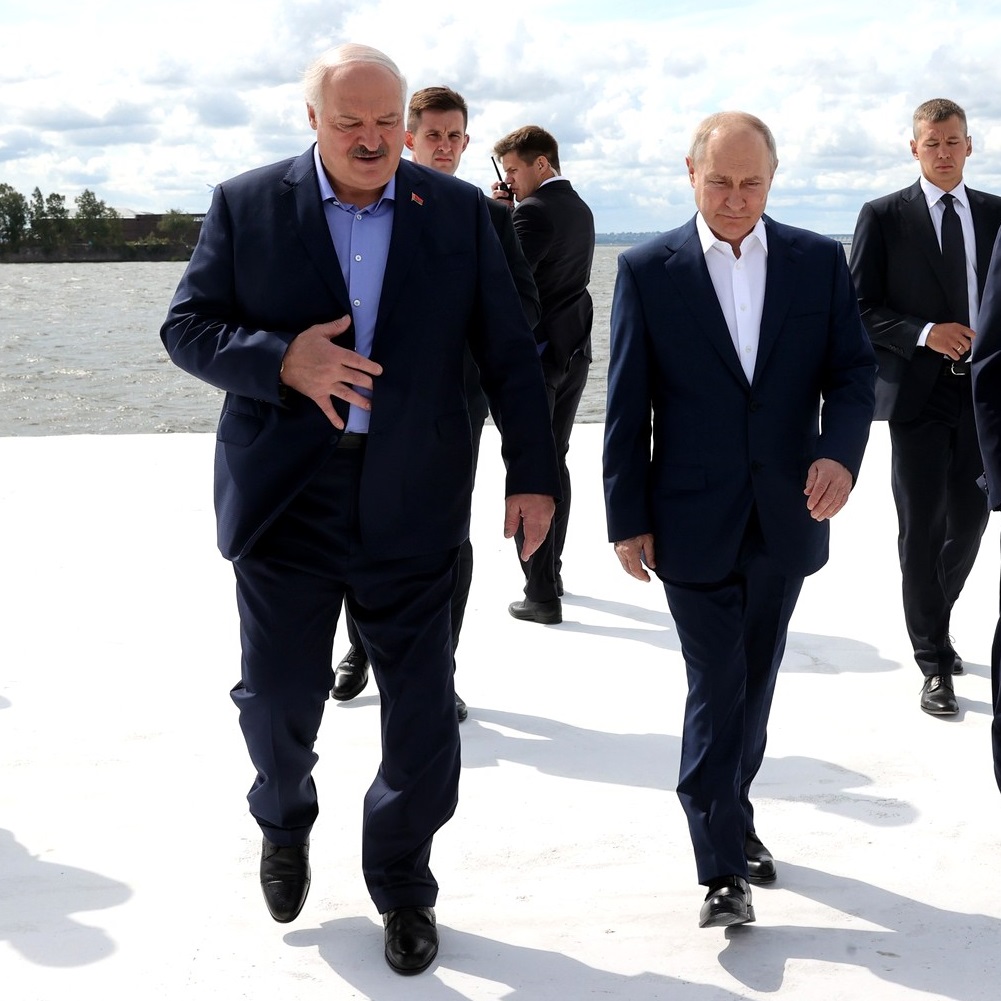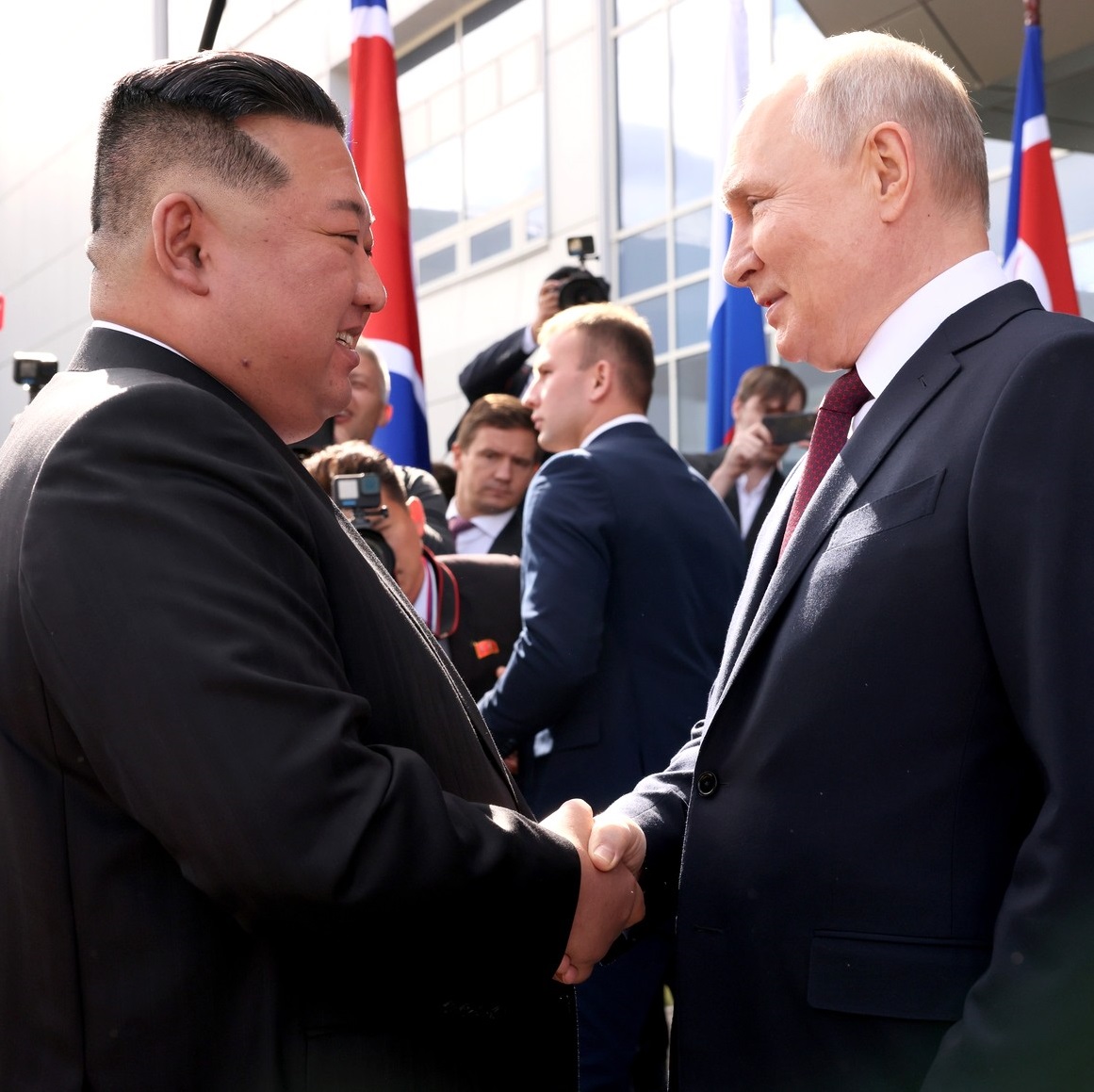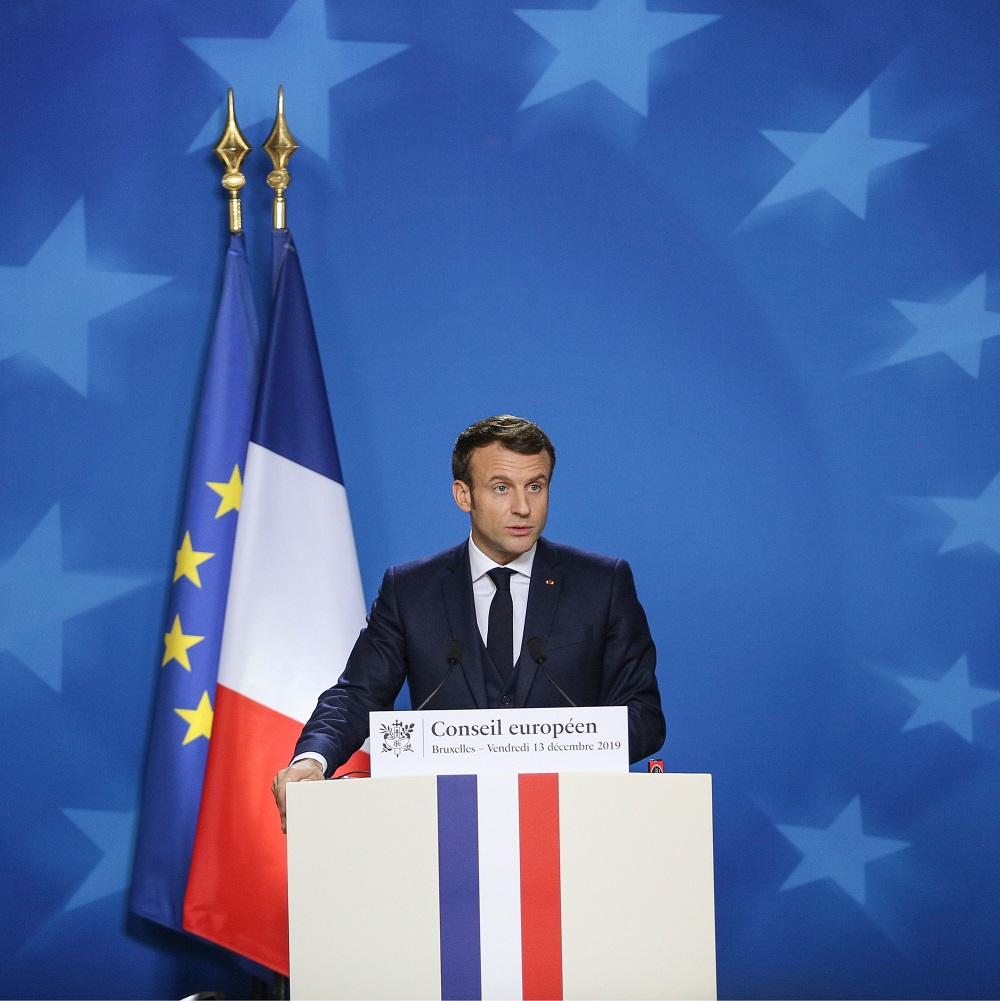
French President Emmanuel Macron’s Speech in Globsec Summit in Bratislava
by Emmanuel Macron
Since GLOBSEC opened its doors in 2008, many political leaders and officials have spoken at the Bratislava Forum, but unless I am mistaken, no French President. That was no doubt an anomaly. And it would be even more of an anomaly today, in the context of Russia’s war against neighbouring Ukraine when, quite simply, the future of our continent is at stake, and with much playing out in this region. This is particularly true at the cusp of a month that sums up the magnitude of our strategic challenges, with the European Political Community Summit in Chișinău tomorrow, then an important European Council meeting for the future of our Union in June, and last the NATO Summit in Vilnius. Before these milestones, I think it is worth explaining my thinking, with great freedom in the tone, when it comes to the moment which Europe is living on the geopolitical stage. Almost 20 years ago, our Union opened its gates to Slovakia and other countries freed from the Soviet grip. That was not merely an enlargement of our Union: it was the return to our family of those from whom we had been separated for too long. I do not believe there is a “Western” Europe and an “Eastern” Europe, an “old” Europe and a “new” Europe. That would mean perpetuating the artificial border imposed for decades by the Soviet Union. There is only one Europe. A single weave of intertwined histories and diversity, but with the will for geographical and geopolitical unity and to build, ultimately, a common narrative. I believe that is what unites us all behind this project, that does not erase our national identities and national projects, but rather enables us to conjugate them in an overarching narrative. Let us remember the last words of the director of the Hungarian press agency, just minutes before he was crushed by Russian artillery in November 1956: “We will die for Hungary and Europe”. The curtain was falling across our continent, and it was already our unity that was at stake. It announced decades of forced separation, decades of a “kidnapped West”, to borrow the excellent words of Milan Kundera that we can make our own today. And I would like to add, as I speak to those who are here today, that even after Slovakia and many other countries joined the Union, we did not always hear the voices you brought, calling for recognition of your painful memories and history. Some told you then that you were missing opportunities to keep quiet – but I believe we sometimes missed opportunities to listen. That time is over, and today, these voices must be all our voices. So my message is simple. In the times we are living in, we must not let the West be kidnapped a second time. We will not let Europe be kidnapped a second time. The challenges we face are considerable, with war at our borders. The war of aggression against Ukraine isultimately an extreme manifestation of a challenge to our European unity that has played out in the last fifteen years, and a show of fragility. Fifteen years of Russian attempts to overturn the whole European security architecture, to reshape it in its own terms. We all know the milestones: Vladimir Putin’s speech in Munich in 2007, the aggression against Georgia in 2008, that against Ukraine in 2014, and again against Ukraine in 2022, and the rampant transformation of Belarus into a vassal state. Ultimately, what Russia demands, and what it sought to codify in the draft treaties it brandished on the eve of its invasion just over a year ago, is the weakening and neutralization of Ukraine and, ultimately, for a whole part of Europe to be made vulnerable in return for minor and largely unverifiable commitments. In this context, it is true, we failed to provide a European response, or to organize an architecture to protect ourselves, via the OSCE or the other projects envisaged at the time, against these attacks. As for NATO’s response, it was too much or too little: perspectives offered to Ukraine and Georgia, exposing the two countries to Russia’s wrath, but which did not protect them, and which came with guarantees that were far too feeble. And we lacked coherence as Europeans. So we provided insufficient guarantees to certain countries at our borders. We did not engage with Russia in a security dialogue for ourselves. Ultimately, we delegated this dialogue to NATO, which was probably not the best means to succeed. And at the same time, we did not break free of dependencies on Russia, particularly for energy, and indeed we even continued to increase them. So we must be clear-sighted about ourselves. We were not coherent in our approach. In coming here, I am aware of the experience many of you had during the Soviet period, and I know why everyone is determined, for good reasons, to ensure that does not happen again. That is my commitment too. Every country has the right to choose its alliances, and opting for freedom, democracy and transparency is never a threat to one’s neighbours. And as I saw powerfully, with the major G7 partners in Japan a few days ago, the foundation of the Charter of the United Nations remains sovereign equality: it has never been limited sovereignty. And it is in this respect too that what is happening in Ukraine today is not merely a European issue, but an issue for the international order and global peace. What the war in Ukraine shows is not merely that these attempts to subjugate part of Europe are illegal and unacceptable, but also that, in the harsh light of power balances, they are now unrealistic. In Kyiv, in Kharkiv and in Kherson, whole Russian armies have retreated, before being squandered in Bakhmut and elsewhere for the slightest of gains. The war is far from over, but I believe I can say today that one thing is clear: Ukraine will not be conquered. And now what was, a little over a years ago, a “special operation”, has led to date to a geopolitical failure and to the accession of Finland and soon, I hope, Sweden, to NATO. And so a closure of Russia’s access to the Baltic, and also heightened distrust among all neighbours, as well as a loss of standing for Russia in the concert of nations due to failure to respect the Charter. The situation on the ground gives Russia no credibility to seek by threat what already no right could justify. There is no place in Europe for imperial fantasies. It is very important to recognize that, and that is a precondition, in my eyes, for any future organization of peace. How we got here says several things about us. We must remember them as we seek to build the future. The first is the strength of our alliance: from the very first days of the fighting, NATO ensured the security of its borders most effectively. Article V played its full role, and I am convinced it holds Russia at bay, and in this respect we owe gratitude to our American allies who have provided a major share of material and intelligence support to Ukraine. In December 2019, I made a severe comment about NATO, highlighting the divisions that, at the time, as you will recall, were present within it between Turkey and several other powers, describing it as “brain dead”. I dare say today that Vladimir Putin has jolted it back with the worst of electroshock. The second thing that strikes me is the exemplary role of the European Union, too. We have been united, swift and clear and I believe that very few, starting with Russia, expected the European Union to respond in such a way: €67 billion in total, including €14 billion in military aid, sanctions and emergency assistance, as well as taking in millions of refugees. We completely and profoundly reorganized our energy system, which was highly dependent on Russia, in just a few months. And that was a demonstration of unity and strategic clarification. It happened under constraint, and should have been done sooner, but we must be satisfied. I also welcome the adoption of a clear doctrine. Europe has chosen strategic autonomy and European sovereignty. And the Versailles Agenda that we defined in March 2022 is ultimately a long way from what people described five years ago as a French whim when I talked of European sovereignty at the Sorbonne. So I believe the second thing that we should take away from recent months, in addition to the strength of the alliance, is the unity and the ideological clarification of our European Union, and its clarity in terms of military, humanitarian and economic support to Ukraine. France has played its full role in this respect, and I can discuss this further during question time. I will also come back to the subject in the coming weeks and months. However, this collective effort will be for nothing if it is not sustained. Looking forward now, in light of what I just said, and of analysis of the past and the situation in recent months, I would like to imagine our future. Moscow must certainly be very tempted to hope that, where its armies have failed, time will come to the rescue, perhaps when elections are held or as public opinion fatigues. I think we need to be very clear about what we have to do in the short and medium terms. Today, we need to help Ukraine, by every means, to conduct an effective counteroffensive. That is essential. That is what we are doing, and we need to step up our efforts, as what is at stake in the coming months is the very possibility of chosen and therefore lasting peace. The second thing is that we need to be very clear about what we call peace. Peace in Ukraine and on our continent cannot mean a ceasefire that enshrines the current situation, re-creating a frozen conflict and, if you will, accepting the seizure of territory in violation of all the principles of international law. Because ultimately, such a frozen conflict would definitely be the war of tomorrow or the day after, and would weaken us all. Only one peace is possible: a peace that respects international law and is chosen by the victims of the aggression: the Ukrainian people. That is a peace that can last and that therefore respects these balances, bolstered by, and I will come back to this, credible guarantees. And so we need to prepare very clear-sightedly for this conflict and I will come back to this, credible guarantees. And so we need to prepare very clear-sightedly for this conflict to last, and for the consequences of the conflict to last. I hope the coming months will enable us, following a victorious counteroffensive, to bring everybody back to the negotiating table and build lasting peace, under the conditions I just set out, chosen by Ukraine and in accordance with international law. But we will have years and years of reconstruction and a humanitarian situation to manage, as we know already. We must also, to be credible in Russia’s eyes, put ourselves in a position, ourselves and our public opinions, to support Ukraine longer-term in a high- and medium-intensity conflict. That means working with all our partners to review and re-analyse this summer the very nature of our support and what is needed to achieve the result I have described. At the same time, we need to convince the global South, because there is, in the context I have discussed, a fragility that we must be clear about. It is that today, while thanks to the engagement of Japan and a few others, this is not simply a Western war, many emerging powers consider that it is not their war. Even if they recognize that it is an aggression and contrary to the Charter of the United Nations, they barely murmur it, because they consider that their main problems are fighting poverty within their borders, that they are subject to enough constraints already, that there are double standards, that their own security is not addressed, that they are facing the consequences of this war head-on, and that when their own security was threatened, we did not respond with the same vigour. We must heed that message. Otherwise, the risk is that all these countries will be seized upon by others to build an alternative international order and become, by choice, clear-sightedly or in fact, by composition, objective allies of a sort of Russian way. And so we must absolutely, as we make efforts to support the preparation of lasting peace, do this work to convince the countries of the South and several emerging countries, and thus re-engage in the assistance that we have a duty to provide them in the clarification of our agenda. Now that I have said all that, let us look at our future. The question we face is ultimately what future is possible for our Europe, in the long term, and how our Europe can rebuild lasting stability, peace and security for itself. We have responded very well in the short term, thanks to the commitment of States. NATO has shown its credibility on its Eastern Flank, and the European Union through its efforts. But is that enough in the long term? Today, we should be pleased to have an American Administration that has stood with us, that has made as many efforts as the Europeans, and that very clearly increases our collective credibility. We should be grateful and thankful to the United States of America. Will that Administration always be the same? Nobody can tell, and we cannot delegate our collective security and our stability to the choices of American voters in the coming years. At the same time, the Americans have been asking us for years, each successive Administration, to better share the burden and to make greater efforts for our security and our neighbourhood. And so yes, a Europe of Defence, a European pillar within NATO, is essential. That is the only way to be credible for ourselves, to be credible in the long term, to reduce our dependency and to shoulder our legitimate share of the burden. Because, whether we like it or not, our geography will not change. We will live in the same place, and Russia will remain Russia, with the same borders and the same geography. We need to build a space that, tomorrow, must be this space of lasting peace, because the rights of the Ukrainian people will have been respected and international law will have been restored. That space must allow us to cohabit as peacefully as possible with Russia – but with no naivety. I repeat, this project is not one of naivety with regard to Russia – I have never had such naivety – but it is aboutbnot denying geography and not considering that we should make our choices as if there was an ocean between Russia and us. And my goal is in no case to try to replace NATO with something else. I want to debunk all these ideas here because I know how they can be repeated and distorted. I do not want to replace NATO with a sort of Franco-German condominium. No. I believe that it is a broad, powerful Europe, with countries like yours, like Poland and many others, that need to play their role in this Europe of Defence, a Europe that increasingly ensures its own security and addresses its own neighbourhood issues. To do so, we now, urgently, need to speed up our strategic choices and the implementation of what we have started to decide. And that agenda is part of what we must build for this common destiny. Firstly, we need to forge a more sovereign European capacity when it comes to energy, technology and military capabilities. That is part of the Versailles Agenda we launched in March 2022. We now need to swiftly, and very tangibly, implement that agenda: meaning we should increasingly build European, buy European and innovate European. When it comes to military capabilities, that also requires a national effort that we have to make. France did not wait for this war. We stepped up our efforts with the military programming law in my first term and we are currently increasing it by €100 billion compared to the previous period, to reach a total of €413 billion under the current draft law. Alongside the prospect of reaching 2% of GDP, we also need to achieve tangible goals, with deployments and real capabilities to ensure the credibility of this collective effort, as France did a few days after Russia’s aggression against Ukraine by deploying forces to Romania. Less than eight days later, we had hundreds of soldiers in Romania. This is about the credibility of a European Defence within NATO. later, we had hundreds of soldiers in Romania. This is about the credibility of a European Defence within NATO. But a sovereign choice is needed, with capabilities, expenditure and deployment mechanisms. This strategic autonomy and military sovereignty also requires an industrial effort. We have clearly understood, in recent months, while emptying our arsenals, that we own with certainty only what we produce. We must learn lessons from this and act accordingly. And when I see certain countries increase their defence spending to massively buy non-European, I simply say: “you are creating yourselves your own problems for the future”. We need to use this opportunity to produce more in Europe. We have been inventive together, creating something new concerning ammunition, a great progress in support of Ukraine. We need to go much further. We need to harmonize our European standards, because there is too much competition between us. There are far more different standards between Europeans than there are within the United States of America. But in doing so, we must develop a genuinely European defence technological and industrial base in all interested countries, and deploy fully sovereign equipment at European level. We need to reduce our dependence and we need to continue building strategic proximity in this collective effort. I have in mind, of course, the European Intervention Initiative we launched five years ago, and that is still every bit as relevant today. Several of you accompanied us in fighting terrorism in Africa, showing that solidarity is two-way, and for that we are grateful. Even if the French presence in Africa is changing, the need to continue to be engaged together remains. And therefore we need to explore possibilities for cooperation in all these spaces and build capacity among Europeans by building on NATO’s interoperability, yet going beyond that, knowing how to engage together common action forces in new theatres of operation in our neighbourhoods, but also in cyber space, in space, in maritime areas, etc. More broadly, as you can see, this first pillar is, ultimately, to strengthen our military sovereignty. This means that we must take a look at the situation in which we live. It is up to us, as Europeans, in the future, to have our own capacity to defend ourselves and to deal with our neighbourhood. And in this regard, let’s not only focus on capabilities to manage past or current wars or to manage conflicts that are simply those that are emerging today. Dealing with our neighbourhood does not concern our Eastern Flank alone. It also concerns the Mediterranean, the Eastern Mediterranean and Southern Mediterranean regions, and new spaces of conflict including cyber space, space and maritime areas. They are at least as important as land wars on our continent that we have seen re-emerge because of Russian aggression and that we thought were disappearing, but that do not dispel the new forms of conflict that will grow in number. Therefore, let us have this strategic lucidity to prepare future conflicts that are bound to happen. In addition to this focus on sovereignty that is therefore European, technological and military, our second challenge is to see to it that Europe becomes a fully-fledged player, instead of being on the receiving end of strategic evolutions in its environment. In these last few years, I have been struck by the fact that we Europeans have not changed our status of geopolitical minority. It’s very hard for a French President to say this so bluntly. This generates irritation and annoyance. But I had the experience of going to a NATO Summit with another US Administration that liked us less, and which, with hardly any notice and in coordinating things with Europeans in a very bureaucratic way, informed us that it was withdrawing from the INF Treaty saying that “the Russians are no longer complying with it”. In 2019, we Europeans discovered a treaty that covered us against missiles that landed on our soil, and that Russian non-compliance and the US decision could leave us exposed and somehow naked, because we were not a party to it. The same thing happened when Russia methodically suspended implementation of the New Start Treaty last February, then clearly violated the NATO-Russia Founding Act in March, etc. I say this very clearly, we Europeans must be active players of these treaties that cover our security and build the future framework. If we delegate our role to others, Russia, the United States or I don’t know who, we will never be credible players. And therefore, yes, we must build these diplomatic solutions for the future. To do so, we must first fully control arms, which refers back to what I was saying about our industrial lucidity. Europe was absent from treaties such as the Intermediate-Range Nuclear Forces Treaty and the New Start Treaty, despite the fact that its security was at stake. Therefore, it must now weigh in. And it will have much more credibility if it is a player, and not a spectator, in these balances. That is why I called on Europeans to acquire a deep-strike capability, which will bolster our security, and also give us a card to play in all future negotiations. I wish to launch discussions with the European partners that are interested in exploring cooperation in this area. The second, which is related, is air-defence. The war in Ukraine has shown its vital importance. It’s a strategic issue before being an industrial issue , but very clearly, it must build on a balance of offense and defense. It should clearly take nuclear deterrence into account. That is why, as I have pledged in Munich, a conference will be held on this issue on 19 June in Paris. I invite all defence ministers of the European countries represented here today to attend. It will give us an opportunity to pursue our work. The third, more broadly, is the way in which Europe can secure its environment. We must build these new treaties as fully-fledged players around the table. And in doing so, let us be very clear, the issue of security with our neighbours will be raised. We will undoubtedly discuss this again during question time. But securing our environment is a key component of this credibility and of a Europe with a full role. We should provide Ukraine with solid security guarantees to put an end to repeated destabilizing actions. If Russia wants to continue destabilizing Europe, it must be ready to pay the geopolitical price. I have listened to all of our debates, but we would be strange geopolitical players if we were to say “we are massively arming Ukraine, but we do not want to include it in any strategic security debates.” I was reading something Henry Kissinger said recently, who we all know is not the least experienced diplomat. He was right when he said: In a year, all those who, with good reason, have helped Ukraine, have made it such a powerful player that it would be best to bring it back into these existing security architectures. I tend to share this vision. Therefore, if we want credible lasting peace, if we want to have influence with respect to Russia, and if we want to be credible vis-à-vis Ukrainians, we must give Ukraine the means to prevent any additional aggression and we must include Ukraine, in a structure, in a credible security architecture, including for ourselves. That is why I am in favour – and this will be the subject of collective discussions in the coming weeks ahead of the Vilnius Summit – of providing tangible security guarantees to Ukraine, for two reasons: Ukraine today is protecting Europe and provides security guarantees to Europe. The second reason is that Ukraine is now armed to such a point that it is in our interest for it to have credible security guarantees with us in a multilateral framework, with multilateral support or bilateral support. This is what we will discuss. We must today be much more ambitious than we sometimes are in discussions on this topic. Over the medium term, it is clearly our Europe’s stability and security that we will need to build on the basis of this solid peace in Ukraine, of these security guarantees in our neighbourhood – and tomorrow the question of Belarus and others will be raised – and of a transparent framework of trust making it possible to avoid the escalation of capabilities in the future to exit, at some point, this state of war when peace will be negotiated and stable. Yet we have armed our Eastern Flank so much and Russia has deployed so many arms that we will have to rebuild - I am talking here about the medium term - a framework for de-escalation. But it will be up to Europeans at that time to really build it in a transparent framework in which we must be players of these treaties, we must be around the table in order to negotiate, and around the table in order to determine their effective compliance and their evolution, as opposed to what has been done in the past. That is why, within this framework, we must also think of a wider Europe and I will end my remarks with these points. This Europe is one that I wanted to propose just over a year ago in Strasbourg, that of a European Political Community. Why? Because we need to consider our Europe, not only from a security standpoint, within the framework of NATO, and not simply within the framework of the European Union. That is why the European Political Community does not compete with NATO, nor does it replace enlargement. It is a framework for strategic discussion needed by all countries to build, I hope, an innovative and new institutional architecture, regarding energy and interconnection, mobility, security, strategy, and coming up with common solutions without waiting for enlargement to be completed and without merely taking a NATO-based approach. We will pursue this at Chișinău and we will express our willingness to go as far as possible in this format where cool-headed discussions can be held and topics of common interest can emerge. Among other topics, I will have an opportunity to propose the extension of the European Cyber Reserve to include all EPC countries because it is in our interest to be inclusive in order to safeguard our security. In this regard, the European Political Community is a geopolitical lab, if you will, and we need to continue down this path. But as I have said, it does not replace enlargement. For us, the question is not whether we should enlarge – we answered that question a year ago – nor when we should enlarge – for me, as swiftly as possible – but rather how we should do it. Several of you may remember that France advocated a change in the enlargement method in 2018. However, ultimately the war in Ukraine and today’s worsening situation in several areas of the Western Balkans have shown us one thing, which is that our current method is not working. Yet I believe there are two mistakes we should avoid making. The first is to tell ourselves that the situation is worsening, stay as we are, and give hope to Western Balkans, Ukraine and Moldova, and then procrastinate. We are very familiar with this tactic, we’ve been using it for a long time. If we do this, I think that we would actually give more space to those who want to destabilize Europe and I think that we would wake up in a few years to a situation that is considerably worse. A second mistake would be to say “let’s enlarge, it’s our duty and in our geopolitical interest, I think we need to anchor Moldova, Ukraine and the Western Balkans to our Europe. Let’s do it. We’ll reform later”. This would also be disastrous because it would create a powerless Europe, burdened at times by heavy bureaucratic procedures, slow, and with divergent trajectories. You can clearly see that in Europe there are ultimately two deep forces. They are both respectable. One that says: we need more geopolitical unity, to anchor the Western Balkans, Moldova and Ukraine to this Europe. It needs to be united. It needs to think of itself in this space in terms of security, geopolitics, energy and migration. On the other side, we have had a preview, but we need to coordinate economic policies to a greater extent, have more requirements regarding the rule of law and it creates a somewhat centrality that some States do not always accept. We need to think about this paradox, which is that our European Union was not designed to be enlarged at will. It was designed to always be deepened and to move towards a more integrated project. We need – due to the times in which we are living and the fact that everything is happening at the same time to a certain extent – but that’s how it goes – a very great moment of theoretical and geopolitical clarification of our European Union. Yes, it should be enlarged. Yes, it should be rethought very extensively with regard to its governance and its aims. Yes, it should innovate, undoubtedly to invent several formats and clarify each of their aims. It is the only way to meet the legitimate expectation of the Western Balkans, Moldova and Ukraine, which should become part of the European Union, and to maintain effectiveness in the geopolitical field, but also with regard to the climate, rule of law, and the economic integration the EU is now experiencing. And therefore, we need to re-articulate and rethink the balance of intergovernmental versus communitarian, and also understand what happens in Member States when they no longer understand Europe and the path that it is taking now and for the time being. And we will be working on this with several of our partners in thecoming weeks. I have already spoken too long. Please accept my apologies. These were the points I wanted to discuss. And therefore, as you have understood, our ability to build a just and lasting peace in Ukraine without any weakness is at stake, along with the future of our continent. I truly believe this will happen in the months and the two or three years ahead. Not much more. I believe Europe has experienced a conceptual and strategic awakening. But is must learn all the possible lessons from the past for itself and its neighbourhood. In this context, I think you’ve understood that is why I’m here. You can count on France. France is sometimes seen as being arrogant or faraway from or not interested in this part of Europe. As for me, I visited every EU Member State during my first term in office. Every one, because I considered that the European Union is not just Brussels, but all the capitals. It is this constantly plural dialogue and the absence of hegemony. But you can count on France over the long term. I also know that France can count on you so that we can together build a Europe that is stronger, more sovereign and more capable of ensuring its own security. And this cannot be done with just one, two or three countries. We will do it with all 27 and even more, by including in this strategic debate all those who will join us tomorrow in Chișinău, in this capacity to have frank, open, far-reaching, powerful, ambitious dialogue, by accepting our differences, respecting them and clearly setting out our aims. Ultimately, let us recognize together that our Europe must be a great democratic, diverse, but united power. Thank you very much










